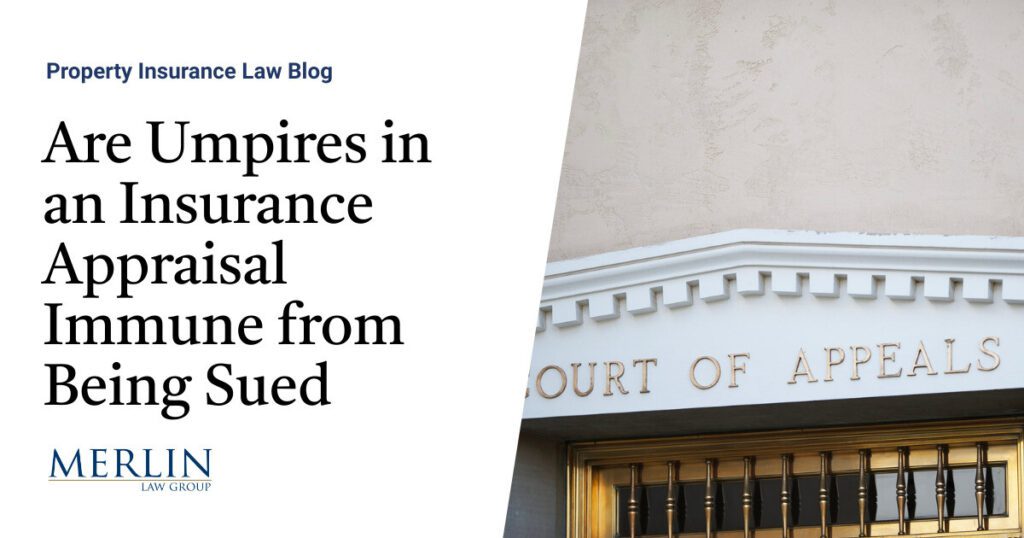Are Umpires in an Insurance Appraisal Immune from Being Sued?

This post is a follow-up to “Does an Umpire Have Immunity From Suit? Is an Appraisal an Arbitration in North Carolina?” The parties have filed appellate briefs on the matter and are awaiting a decision.
Arguments for arbitral immunity made by the Umpire, O’Leary, are:
The North Carolina Arbitration Act provides that arbitrators have the same immunity as judges, and this immunity “supplements any immunity under other law.”
The “other law” includes North Carolina common law on the immunity of private citizens resolving disputes.
Under the “functionality test,” private citizens such as O’Leary acting as arbitrators have judicial immunity when resolving disputes between parties or adjudicating private rights.
O’Leary was a private citizen performing the function of resolving the dispute between the insurer and insured in accordance with the policy’s appraisal process, so he should get immunity under the functionality test.
Denying O’Leary immunity would deter private citizens from serving as umpires/arbitrators and interfere with the conduct of these proceedings.
Arguments against arbitral immunity made by First Protective include the following:
The Arbitration Act only applies to “arbitrators” and “arbitration agreements.” O’Leary was an “umpire” under an appraisal provision, not an arbitration agreement.
The district court correctly found the Arbitration Act inapplicable to an umpire in an appraisal. O’Leary abandoned this argument on appeal.
The “functionality test” from North Carolina common law does not apply to expand arbitral immunity to umpires. The case cited by O’Leary predated the Arbitration Act and involved an actual arbitration agreement rather than an insurance appraisal.
O’Leary waived the “functionality test” argument by not properly raising it in the district court.
Public policy does not justify extending arbitral immunity to umpires in insurance appraisals beyond the terms of the policy.
The key dispute is whether the Arbitration Act’s immunity applies only to formal arbitrators or if it extends to umpires in appraisals under the common law “functionality test.” O’Leary argues for a broad reading, while First Protective argues for limiting immunity to what the statute expressly covers. Since the case is so dependent on North Carolina law, I am not certain how much the decision will impact this issue in other states.
One lesson from this case is that all appraisers and umpires should carry insurance to help defray the significant legal costs if one party files suit.
Thought For The Day
Judges, like people, may be divided roughly into four classes: judges with neither head nor heart—they are to be avoided at all costs; judges with head but no heart—they are almost as bad; then judges with heart but no head—risky but better than the first two; and finally, those rare judges who possess both head and a heart—thanks to blind luck, that’s our judge.
—Robert Traver



